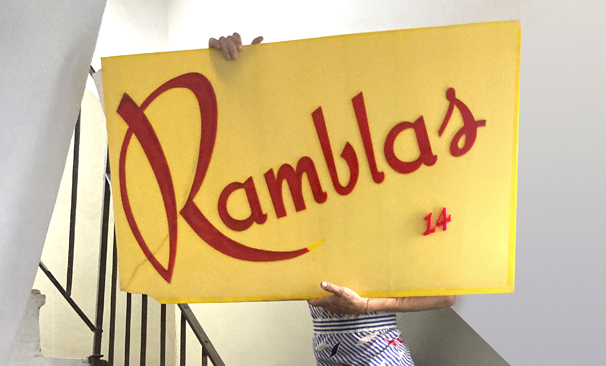What are you looking for?
You might be looking for...
Rambla 14, itinerant fragments in three times
A theatrical and dramatised performance
Adult, general and specialised audiences: theatre, performance, literary, audiobooks, radioplays
Please indicate if you want to come to the performance on the 7th or the general test on the 5th.
Activity open to all and free of charge, with prior registration (30 places):
santamonica@gencat.cat

The performance RAMBLA 14, itinerant fragments in three times, tells the story of the change in the lives of the residents of La Rambla based on real events.
The piece simulates a journey through time from 1973 through the present day to the near future, in 2072, where we can capture glimpses of the everyday life of some of the neighbours (fictitious and real) who live in the Rambla 14 building.
The semi-fictionalised neighbourhood of Rambla 14 came about thanks to the collaboration with the neighbourhood association SOS Rambles, which detected a building that was currently half empty and shared between the Generalitat and private owners, Rambla 14.
The dramatised texts were written over several months in collective authorship between Christina Schultz, Carlos Clemente, Diego Ballestrini, Mar Merino, Ricardo Cardenas and Aida Gonzalez, some neighbours of Las Ramblas and other people and are based on a conversation in letters from 1973 between a former neighbour of Rambla 24 and her fiancé, a legionnaire in the Sahara.
Interpreters:
David Anguera Martínez
Lisa Reventós
Cinta Moreno
Gemma Charines
Carol Muakuku
By the resident artists residents in the area of circulation and bodies
In collaboration with:
SOS Ramblas, several neighbours from la Rambla, Carlos Clemente, Mar Merino, Ricardo Cardenas, Diego Ballestrini, Aida Gonzalez, Angela Precht and Eduard Elias